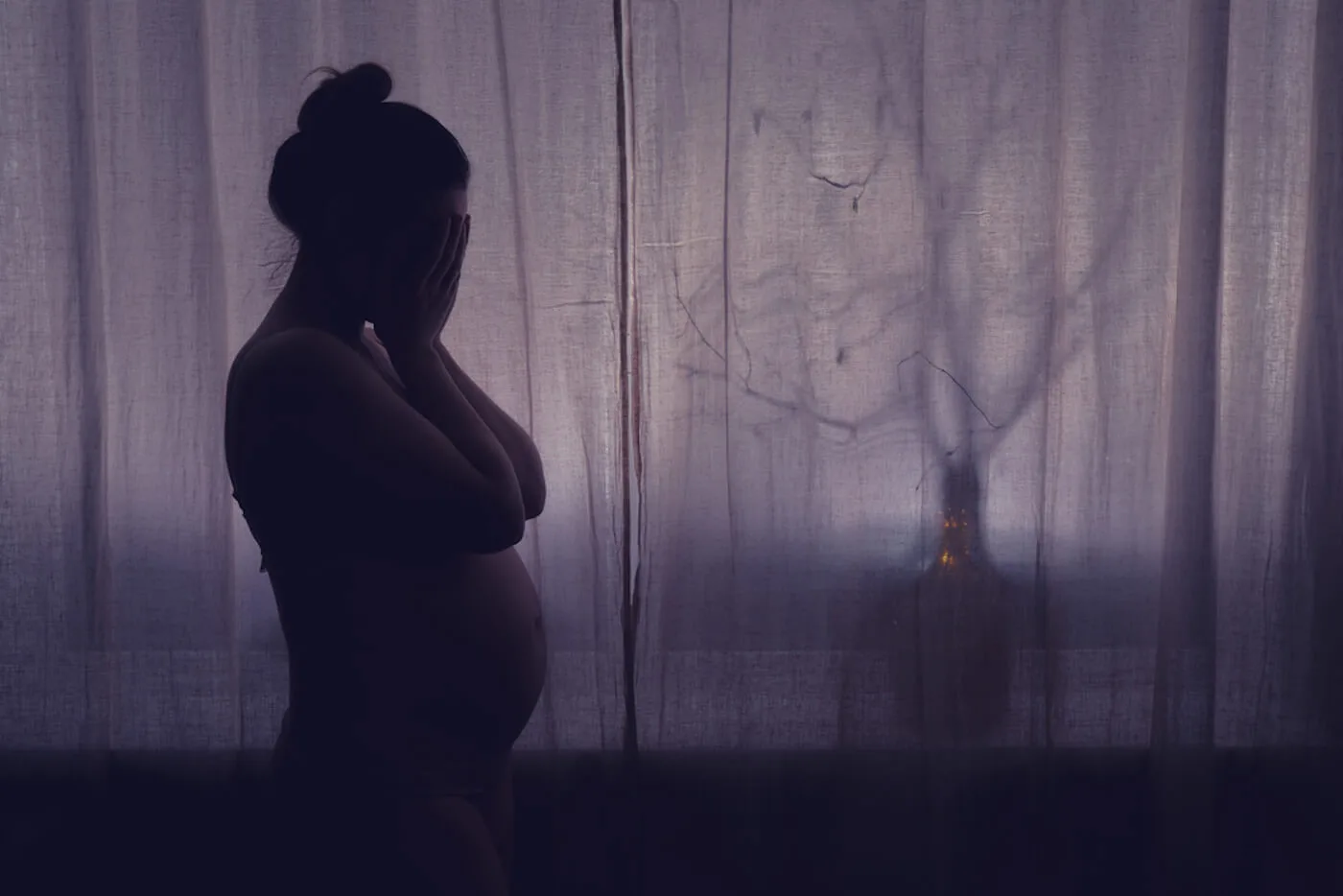
(Photo by Zhuravlev Andrey via Shutterstock)
It’s okay to recognize that pregnancy isn’t a fairy tale existence and motherhood doesn’t come with an owner’s manual. Questions, worries, and down days come with the territory, but help is available.
They used to be called the “Baby Blues.”
The almost-dismissive term was used to describe the depression, anxiety, and other mental health conditions that affect an estimated 20% of women during pregnancy or the postpartum period up to a year after childbirth. While recognition about maternal mental health concerns has grown, advocates and parents say much more needs to be done to provide ways for women to reach out for help and not face embarrassment or isolation.
“We have a healthcare system that just isn’t set up well to manage the totality of what goes on when someone has a baby,” said Sarah Bloomquist, an Ozaukee County resident and cofounder of the Moms Mental Health Initiative (MMHI). The nonprofit organization helps moms navigate mood and anxiety disorders, share information, connect them to resources, and provide support. “When we went through it ourselves, I mean, I experienced it—trying to find the right help was so difficult. We really felt like there was a gap in care for women who had a baby and were struggling with anxiety or depression.”
Nicole Slavin, of Motherhood for Good, a Green Bay area support network for moms that also encourages civic education and participation, agrees.
“It’s so hard to speak of my own experience postpartum,” she said. “Already your brain is overloaded. There’s already too many things that you are responsible for. You’re absolutely mentally, physically, just drained. You’re exhausted. There’s no extra bandwidth. But yet on top of that, you have to identify what’s wrong enough to say, ‘I need help.’”
One evidence-supported policy Wisconsin could pass to help new moms is expanding Medicaid coverage so that vital assistance doesn’t become unaffordable and unattainable. BadgerCare coverage for new moms often expires at 60 days postpartum, leaving uncovered a wide window for potentially fatal complications that include infections, hemorrhaging, eclampsia, hypertension, and cardiovascular problems as well as mental health episodes.
Extending the period in which women are insured under Medicaid can help keep women healthy. According to the American College of Obstetricians and Gynecologists, it can also save lives.
But, for more than a decade, Republicans controlling the Wisconsin Legislature have refused to accept the additional federal funding that would allow Medicaid—known in Wisconsin as BadgerCare—to cover more families and more conditions. The move, connected to ongoing resentment toward passage of the Affordable Care Act in 2010, has meant the state has lost out on billions of dollars. Gov. Tony Evers said expanding BadgerCare starting in this budget would save the state $1.6 billion over the next two years.
For women who are postpartum, suicide and overdoses are the leading causes of death—and experts say they are 100% preventable.
“It’s so upsetting and terrifying to realize that these women are dying from suicide and overdose and often past the typical two to three months postpartum,” Bloomquist said. “That’s happening in six to nine months. And in Wisconsin, it’s an extreme health crisis.”
The Maternal Mental Health Leadership Alliance—a national support and advocacy group—says other forms of mental health setbacks include obsessive compulsive disorder, post-traumatic stress disorder, bipolar illness (which may include psychotic symptoms), and substance use disorders. There is a roughly equal split among the number of women who enter pregnancy with symptoms, develop them during pregnancy, and develop them following childbirth.
Bloomquist said physicians and other providers should be proactive about bringing up mental health issues with their patients, and women should seek out having conversations with their doctors, not simply waiting and hoping the physician asks them about it.
Even when women do ask for help, scarce resources can sometimes require a long wait to visit with counselors, case managers, and other providers. That makes peer support another critical component.
“It’s tough at times,” Duffy said. “And I’m very lucky. I had a friend who, right before I gave birth, actually told me ‘it’s okay if you don’t have that euphoric moment right away. If you feel overwhelmed or whatever you feel is okay, any of your feelings are valid and it’s not a fairy tale all the time.’ That was so helpful. We need more of that.”
Nicole Slavin and Kate Duffy of Motherhood for Good and Sarah Bloomquist of the Moms Mental Health Initiative joined UpNorthNews Radio for a recent interview about maternal mental health. Listen to it here, through the Civic Media radio network website. You can also subscribe to UpNorthNews Radio as a podcast through Apple, Spotify, and other major platforms.
UpNorthNews Radio with Pat Kreitlow airs weekdays, 6-8 a.m. and a live video feed of the show can be found on our Facebook page.
Support Our Cause
Thank you for taking the time to read our work. Before you go, we hope you'll consider supporting our values-driven journalism, which has always strived to make clear what's really at stake for Wisconsinites and our future.
Since day one, our goal here at UpNorthNews has always been to empower people across the state with fact-based news and information. We believe that when people are armed with knowledge about what's happening in their local, state, and federal governments—including who is working on their behalf and who is actively trying to block efforts aimed at improving the daily lives of Wisconsin families—they will be inspired to become civically engaged.


New Biden rules deliver automatic cash refunds for canceled flights, ban surprise fees
In the aftermath of a canceled or delayed flight, there’s nothing less appealing than spending hours on the phone waiting to speak with an airline...

One year on the Wienermobile: The life of a Wisconsin hotdogger
20,000+ miles. 16 states. 40+ cities. 12 months. Hotdogger Samantha Benish has been hard at work since graduating from the University of...

Biden makes 4 million more workers eligible for overtime pay
The Biden administration announced a new rule Tuesday to expand overtime pay for around 4 million lower-paid salaried employees nationwide. The...

‘Radical’ Republican proposals threaten bipartisan farm bill, USDA Secretary says
In an appearance before the North American Agricultural Journalists last week, United States Department of Agriculture (USDA) Secretary Tom Vilsack...





